Here are some pointers if you’re considering changing coaches at the end of this racing season, giving yourself time to find a new coach and get familiar with a new relationship.
With your existing coach. For a long-distance, casual relationship, a simple, short explanation on why you’ve decided to go in a different direction should suffice. However, if your coach is a friend, training partner or mentor with whom you’ve worked closely, it would make sense to at least speak on the phone if not meet in-person if your coach is local to you.
Be honest. Not every athlete/coach relationship will be successful. Just because your current relationship is not the right fit for you doesn’t mean your coach didn’t have your best interests in mind. Be sure to point out what you did like about the relationship and what your coach did do well as you also point out the reason(s) you need a change. Ultimately, you are paying for access to knowledge and expertise – but, it is your money and, therefore, in some respects you are the boss. While coaches certainly do fire athletes, typically it is the athlete who more often fires the coach.
Set proper expectations for the new relationship. You need time to establish a connection and sort out communication styles — try a minimum of three months; six would be better, especially if your new coach’s approach is markedly different than your current coach. Setting pressure-filled goals such as winning your first race “or else” is not fair to the coach, to you or the new relationship you’re trying to establish.
Be vocal with your needs. Review the coach’s philosophy beforehand and make sure it meshes with your own beliefs and experiences. If not, make sure you’re willing to try something different. Also discuss communication style and expectations so you are both on the same page from the get-go.
Mutual trust. Just like you are putting your faith in a coach that he/she will put you on a path to success, the coach has to be able to trust that you will fulfill the expectations put on you – namely following the program as it is laid out and communicating back. Communication has to be a two-way street. Because coaches are not mind readers.
Speaking of communication, it is important to remember that communication starts with you – the athlete. Your coach can’t change the plan if he or she doesn’t know there’s a problem to begin with. For example, did you get sick, or did you crash on your bike or twist your ankle during a trail run? Did you just start a new job and are feeling exhausted due to the additional emotional stressors associated with the career move? Again, we’re not mind readers. When you provide your coach feedback and requirements for adjustments, an expectations for a turnaround time of 24 hours to reflect any changes in the training program is certainly reasonable, and even less time if there’s an associated time constraint. A consistent lack of response or lack of engagement by the coach is completely unacceptable.
Individualization of the training program. The whole reason you hire a coach versus remain self-coached or leverage a pre-baked online program is because a coach will address your specific strengths and weaknesses, and create a plan that is meant to put you on the start line of your key races brimming with confidence in achieving a positive result. If you’re paying for an individualized plan, it should have a clear focus on your best path to improvement. Even more specifically, a coach should be able to clearly articulate the reasons for a specific workout occurring on a given day or the reason you’re completing a given training block when it’s on the schedule.
Lastly, remember we are all in this together. Having fun is most important, even as we try to hit certain goals together. Work hard, but make sure you are enjoying both the journey and the relationship with the person you’re building trust with in order to help you get there. That’s when the athlete/coach relationship becomes a true partnership and you both feel fully invested in the ups-and-downs and, ultimately, the rewards.
Happy Training,
Coach Nate

 RSS Feed
RSS Feed